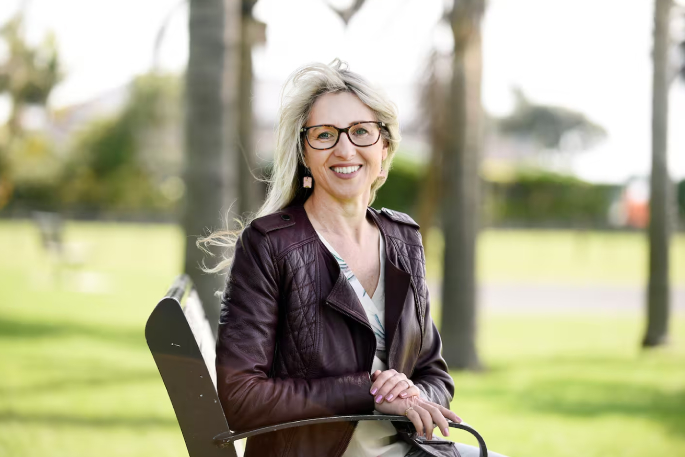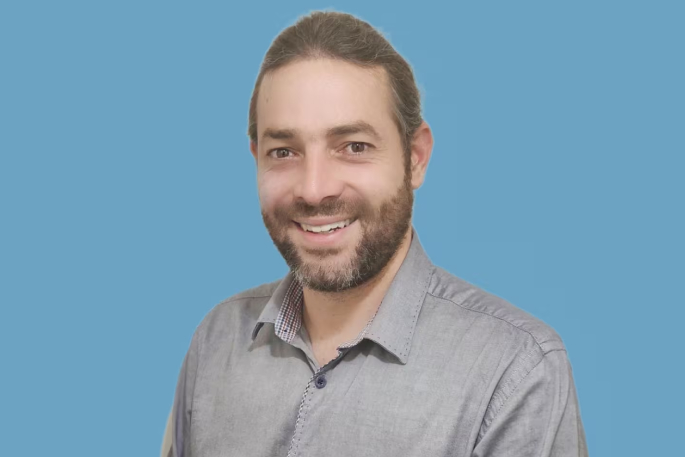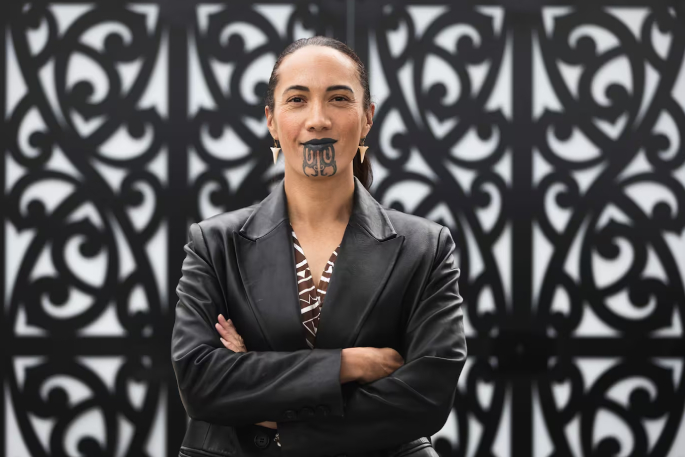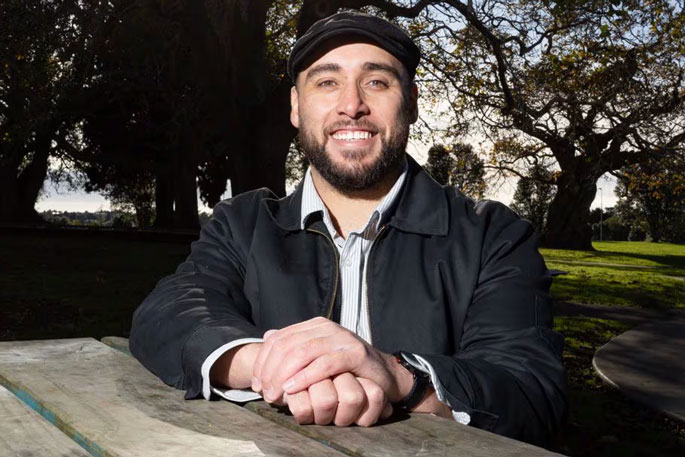An election hopeful wants to establish citizens’ assemblies to change the way Tauranga City Council involves the community in decision making.
Election hopeful Hautapu Baker is championing the idea of deliberative democracy, particularly in the shape of citizens’ assemblies.
Countries such as Ireland and Greece already have similar systems in place and citizen assemblies have been used in Auckland. Hautapu believes Tauranga could be next and at least three mayoral candidates agree.
Citizens’ assemblies are made up of randomly selected residents. The assemblies discuss specific topics, hear from experts and engage in structured debate.
The assemblies are tasked with reaching a consensus and providing recommendations, based on local and external evidence, to elected members.
Hautapu, a father and former council community engagement officer, is standing for the Welcome Bay ward in this year’s election.
He says citizens’ assemblies could help mitigate the dysfunction and adversarial politics that have previously stalled progress in the city. Such assemblies focussed on problem-solving and removed some of the “self-interested politicking” that, in his view, had plagued Tauranga in recent years, he says.
Hautapu says he has already discussed the idea with mayoral hopefuls Tina Salisbury, Andrew Caie and Ria Hall who have each indicated interest.
“It’s been a while since Tauranga has had democracy and it’s important we move forward rather than move backwards and the best-placed people to determine that are, actually, our community,” he says.
“Deliberative democracy leads to a more authentic community voice.”
Citizens’ assemblies “unlock the unheard voices” of Tauranga and balance out the “too-often-heard voices at council”, Hautapu says.
Such a shift would help bridge divides, build public trust and enhance the legitimacy of council decisions, he says.
Assemblies could also allow people to have more of a say on topics like Plan Change 33 or fluoridation - decisions that could have an intergenerational impact, he says.
Hautapu was among those who spoke at a public deliberative democracy meeting earlier this month. He was joined by Dr Anne Bardsley, a researcher in civic engagement and environmental policy.
Anne, who has worked with citizens’ assemblies for Auckland Transport, told the Bay of Plenty Times citizen assemblies had already worked well in Auckland, Greece and also Ireland where “it’s now part of the machinery.
 Mayoral candidate Tina Salisbury, pictured in 2019. Photo / NZME.
Mayoral candidate Tina Salisbury, pictured in 2019. Photo / NZME.
“The thing that I’ve noticed is what the community in Auckland says is not what politicians think they want. It’s really different - because we don’t get the loud voices as you tend to [through the regular council process],” she says.
Anne says citizens’ assemblies, which she likened to juries, were about “empowering communities” which too often had no input in council decisions.
“We’ve asked people if they have been involved in consultation before and most of them, probably 75 per cent, have never been.”
Anne referenced a panel recently tasked with reviewing proposed transport and parking measures in Auckland. There was an assumption no one would be in favour of proposed charging fees but after reviewing the information and what was involved, all panel responses were in favour, she says.
“That’s the biggest thing, elected representatives think they know what people want but unless you’re actually out talking to people, they don’t.”
Tauranga’s transition from commissioners to a fully elected council in the election could be a “real window” to instigate such significant change, she says.
Tina told the Bay of Plenty Times establishing a more proactive way to engage the community in council affairs was at the top of her agenda.
Getting a plan to do this “right away” was the second thing she would do if elected mayor, she says. The first was to form her team.
“I think one of the things we continually hear re negative criticism of councils is we don’t listen.”
Tina says it was easy for some people to feel an apathy to local government, a feeling of ‘why engage when it doesn’t make a difference?’.
 Andrew Caie is running for mayor of Tauranga and in the Te Papa ward. Photo: NZME.
Andrew Caie is running for mayor of Tauranga and in the Te Papa ward. Photo: NZME.
The standard process involved a council making plans before approaching the affected community with an ultimatum that didn’t necessarily offer desirable options. Because of this councils often had to go back, do more work, and repeat the process until an agreeable resolution was found, she says.
This wasted time and money whereas “pre-engagement” before plans were made would “speed things up”, she says.
Tina says pockets of the community, such as students or people working during the day, were not always available to attend meetings or consult with council staff. She says she was keen to incorporate smart technology to ensure people could engage with local government at any time, not just the hours council staff worked.
Andrew, who was also running for a seat in the Te Papa ward, says the city needed “better engagement” and he was open to the idea of citizens’ assemblies but felt they would be best used on a case-by-case basis.
 Ria Hall is running for mayor. Photo / Alex Cairns.
Ria Hall is running for mayor. Photo / Alex Cairns.
”I want our people to be involved so much more.”
In a previous interview, Ria, who is also running for Pāpāmoa, says she was keen to introduce citizens’ assemblies “for our communities to have their say.
“We’ve got so many people that live here in Tauranga and so many specific sets of voices and everyone deserves to be heard and everyone should be heard because we are the makeup of Tauranga now and into the future.”
Former Gisborne councillor and Resource Management Act Commissioner Manu Caddie also spoke at the meeting.
Manu, Ngati Pūkenga, grew up in Tauranga and recently returned. He says people needed to know that citizens’ assemblies made a difference, but they needed buy-in from councils and local politicians.



3 comments
Engagement with the community...
Posted on 27-06-2024 12:36 | By morepork
... needs to be EARLY in the Council process. The citizen's assemblies are a really good idea (I will support anything that increases contributions to a democratic process...) but we still need to have the whole community looking at priorities for major planned (non-essential) works. I'd still like to see a (maybe annual) list of all proposed projects that will require substantial funding (say, =>$100,000...) with that list available for the entire community (or, at least the Ratepayers) to prioritise (with a priority of zero, if you are against it happening.) Once we have the "work in progress" under control and we have a list of new projects which have been presented to the community and prioritized, THEN citizen's assemblies could be used to monitor feedback from the community regarding the actual implementations. (A bit like what we saw here with the Cameron Road ineptitudes.)
Hmmm
Posted on 27-06-2024 15:18 | By Let's get real
I can see some genuine advantages for establishing citizens assemblies, however, I'm always reminded of the story related to me many years ago. The communist party was supposedly reported as advising its members, that to establish change and get elected into positions of influence... "Attend the meetings". People (myself included) like to complain and might have very valuable insights, but they don't want to be in the public eye or identifiable, for numerous personal reasons.
Additionally, public meetings can be, and have been, disrupted by single interest groups that don't accept the views of others.
It's a sad day when a few self-interested activists can interrupt and shout down a public meeting.
The chances of this form of democracy being realised and working for the betterment of everyone in New Zealand is unfortunately quite remote.
@Let's Get Real
Posted on 29-06-2024 14:07 | By morepork
The disruption of democratic meetings is inherent in the design of Democracy. If everybody has a voice, everybody wants to talk. And if some people attend the meeting with an entirely different agenda, then the meeting will be disrupted. We end up with little achieved, no real communication occurring, and the loudest being the "rightest", BUT at least Free Speech was not suppressed... :-) Thus, Democracy renders itself vulnerable and it is probably wiser not to schedule public meetings. Modern technology gives us far superior ways to communicate than to simply stand up and publicly orate. But even that is not infallible; I watched the debate between Trump and Biden and it was a sad travesty for Joe. Even though he was the better man, with better policies, and an infinitely preferable choice, he definitely "lost" the debate. (Trump will still lose the election... :-))
Leave a Comment
You must be logged in to make a comment.